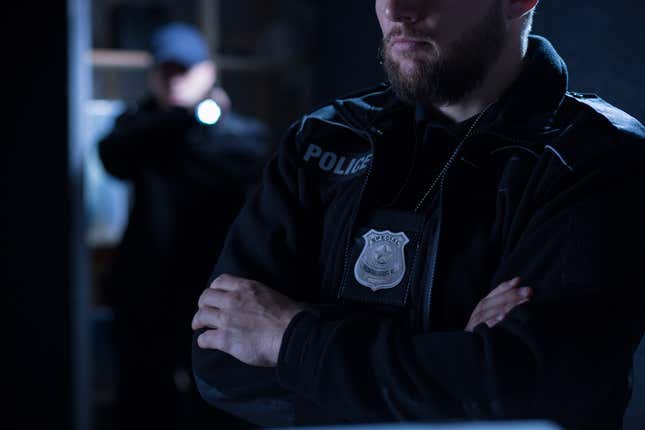
From so-called gang databases to terror watch lists, reports are plentiful about the various lists cops and other law enforcement keep on the people, but who keeps track of police misdeeds?
Now, USA Today, in conjunction with the nonprofit Invisible Institute, is making available to the public a database of some 200,000 incidents of alleged misconduct by 85,000 police officers across the nation.
As the Institute explains on its website, “The Citizens Police Data Project is a tool for holding police accountable to the public they serve.”
Using data culled from thousands of state agencies, prosecutors, police departments and sheriffs, USA Today found thousands of incidents in which those sworn to protect and serve lied under oath, stole, beat their spouses, dealt drugs and drove while drunk.
The database includes the names of 30,000 officers who have been “decertified,” or basically banned from wearing the badge, in 44 states. The collection can be searched by the officer’s name, department or state.
Among the findings USA Today reports:
- Most misconduct involves routine infractions, but the records reveal tens of thousands of cases of serious misconduct and abuse. They include 22,924 investigations of officers using excessive force, 3,145 allegations of rape, child molestation and other sexual misconduct and 2,307 cases of domestic violence by officers.
- Dishonesty is a frequent problem. The records document at least 2,227 instances of perjury, tampering with evidence or witnesses or falsifying reports. There were 418 reports of officers obstructing investigations, most often when they or someone they knew were targets.
- Less than 10% of officers in most police forces get investigated for misconduct. Yet some officers are consistently under investigation. Nearly 2,500 have been investigated on 10 or more charges. Twenty faced 100 or more allegations yet kept their badge for years.
As one might expect, police unions and their political allies have labored to keep reports of such police malfeasance hidden from the public. But as University of South Carolina law professor Seth Stoughton tells USA Today, informing the public about instances of police corruption is key to removing bad cops from the force — and keeping the good ones.
“No one is in a position to assess whether an officer candidate can do the job well and the way that we expect the job to be done better than the officer’s former employer,” Stoughton said.
“Officers are public servants. They police in our name,” he said. “There is a “strong public interest in identifying how officers are using their public authority.”

